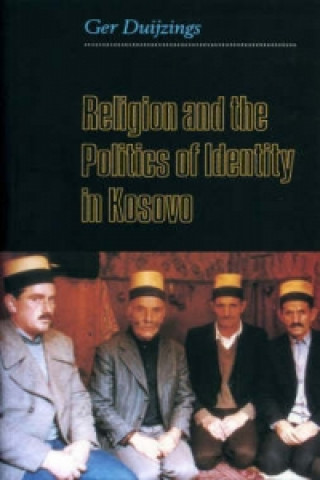
Doručení
Nákupní rádce





Nehodí se? Vůbec nevadí! U nás můžete do 30 dní vrátit
 Dárkový poukaz
V libovolné hodnotě
Dárkový poukaz
V libovolné hodnotě
S dárkovým poukazem nešlápnete vedle. Obdarovaný si za dárkový poukaz může vybrat cokoliv z naší nabídky.
Religion and the Politics of Identity in Kosovo
 Angličtina
Angličtina
 65 b
65 b
30 dní na vrácení zboží
Mohlo by vás také zajímat


Kosovo is a frontier society where two Balkan nations, Albanian and Serb, as well as two religions, Islam and Christianity, clash. This rift has often been perceived as a hard and fast line of division, but the area also has a history of co-existence across these boundaries, through cultural contact, religious exchange and conversion. The tension between conflict and symbiosis lies at the core of this text, which contains seven case studies of various ethnic and religious groups, each of which examines how religion - Islam, Roman Catholicism or Eastern Orthodox - shapes their efforts to construct or reconstruct their identities. Although the focus is on Kosovo, the scope is much wider, covering developments in Croatia, Bosnia, Albania, Macedonia and Serbia as well. The author challenges the idea that Balkan conflicts are evolving around clear-cut and fixed ethno-religious groups. The ethnographic evidence shows that Balkan identities are full of ambiguities, caused by processes of conversion, dissimulation and other forms of manipulation, which are seen as important survival strategies in conditions of endemic violence and insecurity.
Informace o knize
 Angličtina
Angličtina
Kategorie




 Jak nakupovat
Jak nakupovat


























